Category: Social Sciences and Economics
-

Don’t Mess With The Amish: Demography, Religion, and Block Voting
Sorry for all the election posts, but I would be remiss if in closing I didn’t say a word about one of the weirder/more entertaining aspects of the 2024 election that dovetails neatly with my own eccentric interest in religious demography and politics: the rise of the Amish as political kingmakers. In general this election…
-
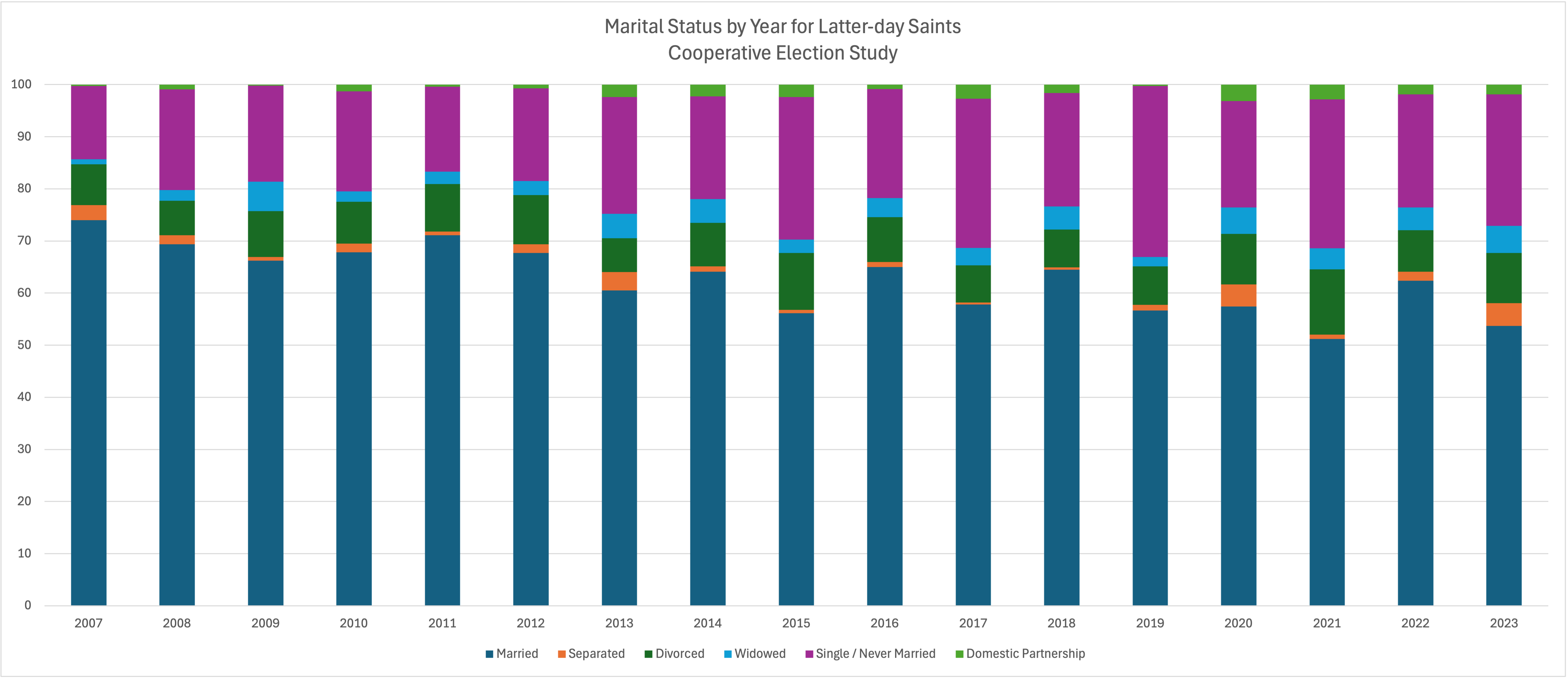
Are Most Members Really Unmarried? Part II With Newer Data
A few years ago I wrote a post questioning the now-common soundbite that a majority of Church members in the US are single. I cobbled together a variety of sources showing that, for people who self-identify as Latter-day Saints, that’s not the case, and I now suspect that the “majority single” position comes from looking…
-

The Black Menaces, The Election, and Demographic Morality Plays
A chart I ran across on Twitter that I use in my stats classes. I don’t know if they’re still around doing their thing, but a while ago the “Black Menaces” group got some attention by interviewing hapless BYU students about different social topics in a way to try to make them look stupid and…
-

A Shrinking Church in a Shrinking World
Obviously I think the Church would bulldoze temples before it got this bad, but still, an interesting thought experiment. Over the next century or so we are going to potentially see a bizarre phenomenon with Church growth. In some countries churches will shutter en masse with wards and stakes being merged many times over–all while…
-

Latter-day Saint Book Discussion, Addicted: Notes from the Belly of the Beast
A very, very, particular niche subgenre I find educational (“enjoy” isn’t the right word) are accounts of mental health struggles or extreme circumstances by people who really know how to write. For those of us who have never been starving or so depressed that we defecate in our bed because we can’t get out of…
-

Is the Church Replacing Itself? Part II
Years ago I wrote a very high-level, abstract post where I analyzed whether the Church was replacing itself, arguing that a lot of the “growth” we’re seeing is an artifact of population momentum, and that we shouldn’t pat ourselves on our back too much (although we should some, since we’re doing a lot better…
-

Grinding the Faces of the Poor Through the Lottery
I do not have the brain chemistry for gambling. If I bet my house on a coin flip and won, I would be a sleepless wreck for weeks anxiously wondering about what would have happened had I lost. (Like tobacco, this is one of those Latter-day Saint rules I would keep even if I left…
-

Churches with Sound Fundamentals Are Very Robust
Imagine President Nelson and the First Presidency came out with a revelation prophesying that the Second Coming would happen on a specific year (yes, that would never happen in the Church for a great number of reasons, but suspend disbelief for a second). This message was trumpeted from the General Conference pulpit on multiple occasions…
-

The Demographic and Financial Future of the Community of Christ
A fun personal anecdote. When I was doing my postdoc at Baylor I was made aware that there was a dataset at the Kirtland Visitor’s Center that had information on early converts that would be useful. After back-and-forthing it with the missionaries there it became clear that it would be much more feasible for me…
-

The Doomsday Equation and the Second Coming
The Book of Zachariah has a prophecy about the Lord splitting the Mount of Olives in two in the last days to save Israel at the last battle. I don’t know if that is how it is going to go down, but I like the symbolism of Christ as the second Moses dividing the land…
-

The Future of Religion and Partnered Sexual Satisfaction
Midjourney’s interpretation of “Married Mormon couple.” It’s uncanny how well it visually taps into stereotype. Deseret News published another piece of mine, this time about evidence that shows that, contrary to conventional wisdom, religious people report more satisfying sex lives. So now for my post-game, more casual, more speculative blogosphere analysis. First off. Yes, I…
-
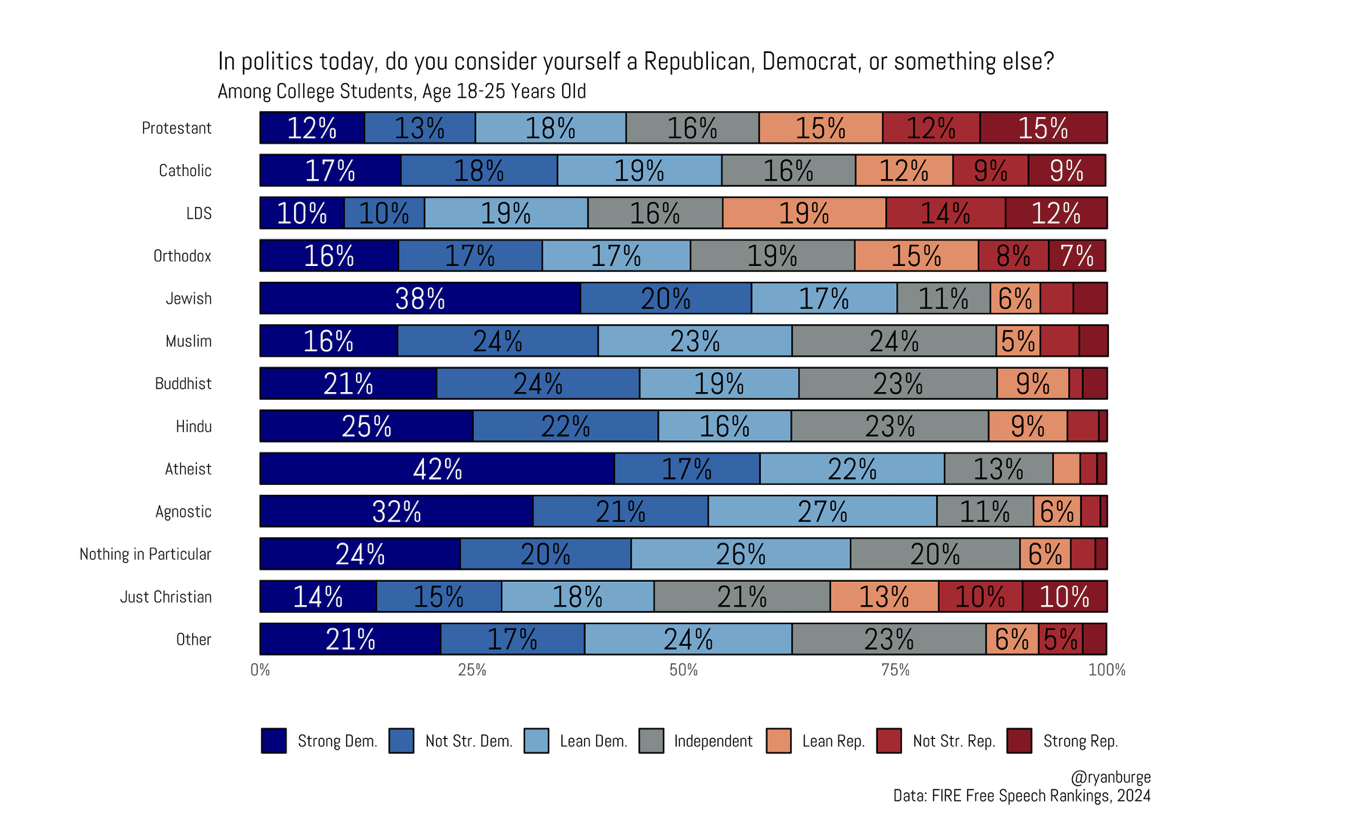
Latter-day Saint College Students Are Very Republican
I think I have mentioned before that I am a huge Ryan Burge fan. Ryan Burge is an Associate Professor of something or another at some college or another, but the point is that he is the preeminent go-to for journalists on data visualizations and insights into the sociology of religion in the United States.…
-

Some of my Best Friends Are…, or Representation in our Wards
I thought it would be interesting to run some basic numbers on how many people from different groups we could expect in our wards and other associations if they were representative. There are a number of takeaways here. First, if there aren’t this many people in your ward, Elder’s Quorum, or what have you, then…
-
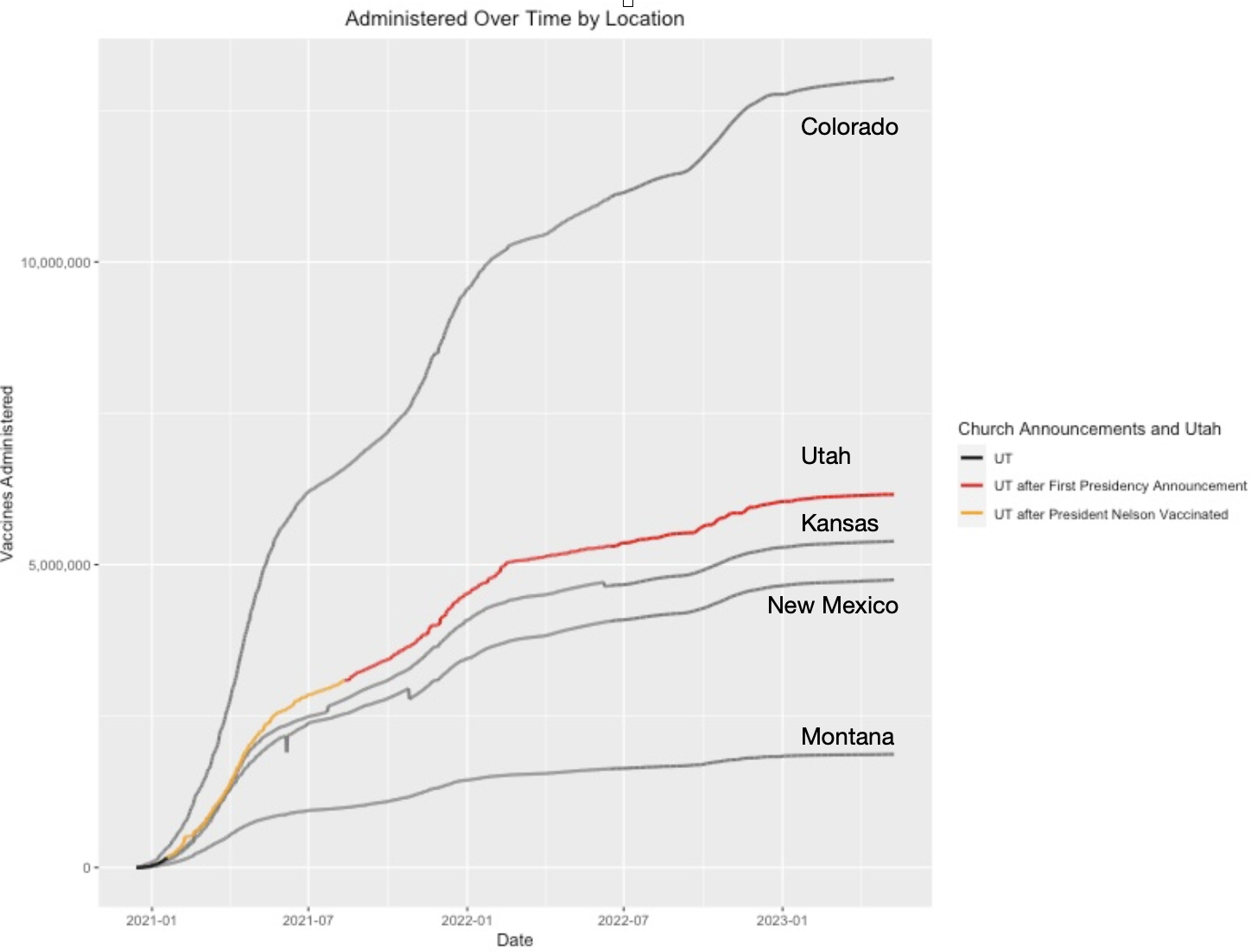
Do People “Follow the Prophet” When it Goes Against Their Ideology? A Quantitative Analysis of Vaccines in Utah
I’ve had a sense for a while now that people tend to exaggerate the influence of the Church on Latter-day Saint and Utah politics. Its influence is important to be sure, but some have this image that half of Utah is ready to jump when 50 North Temple Street says jump, and I’ve always thought…
-

Early Utah Was Relatively Egalitarian
In partnership with the Church, IPUMS (Integrated Public Use Microdata Series) has recently made the entire 1850-1890 set of census data available in tabular (spreadsheet) form for analysis. While individual records have been available for some time, as has a 1% sample of the quantitative data, this new development allows us to download all of…
-
About That Washington Post Article
The recent Washington Post article talking about the decline of the Church has been making the rounds. I don’t have a ton of time to go into everything, but I just wanted to make a few points. I wrote an earlier post using the same CES data where I wrote that “if what we see…
-

How Many Black People and Asians Were in Pioneer Utah?
In partnership with the Church, IPUMS (Integrated Public Use Microdata Series) has recently made the entire 1850-1890 set of census data available in tabular (spreadsheet) form for analysis. While individual records have been available for some time, as has a 1% sample of the quantitative data, this new development allows us to download all of the census…
-

An Ode to Large Families
Preface: Why It’s Okay to Talk About Family Size Family size is one of those hyper-sensitive issues that people gingerly tip toe around in the Church, and with good reason. First, it abuts with the kind of cultural touchstone gender role issues that the Church has kind of soft preferences around but has generally avoided…
-
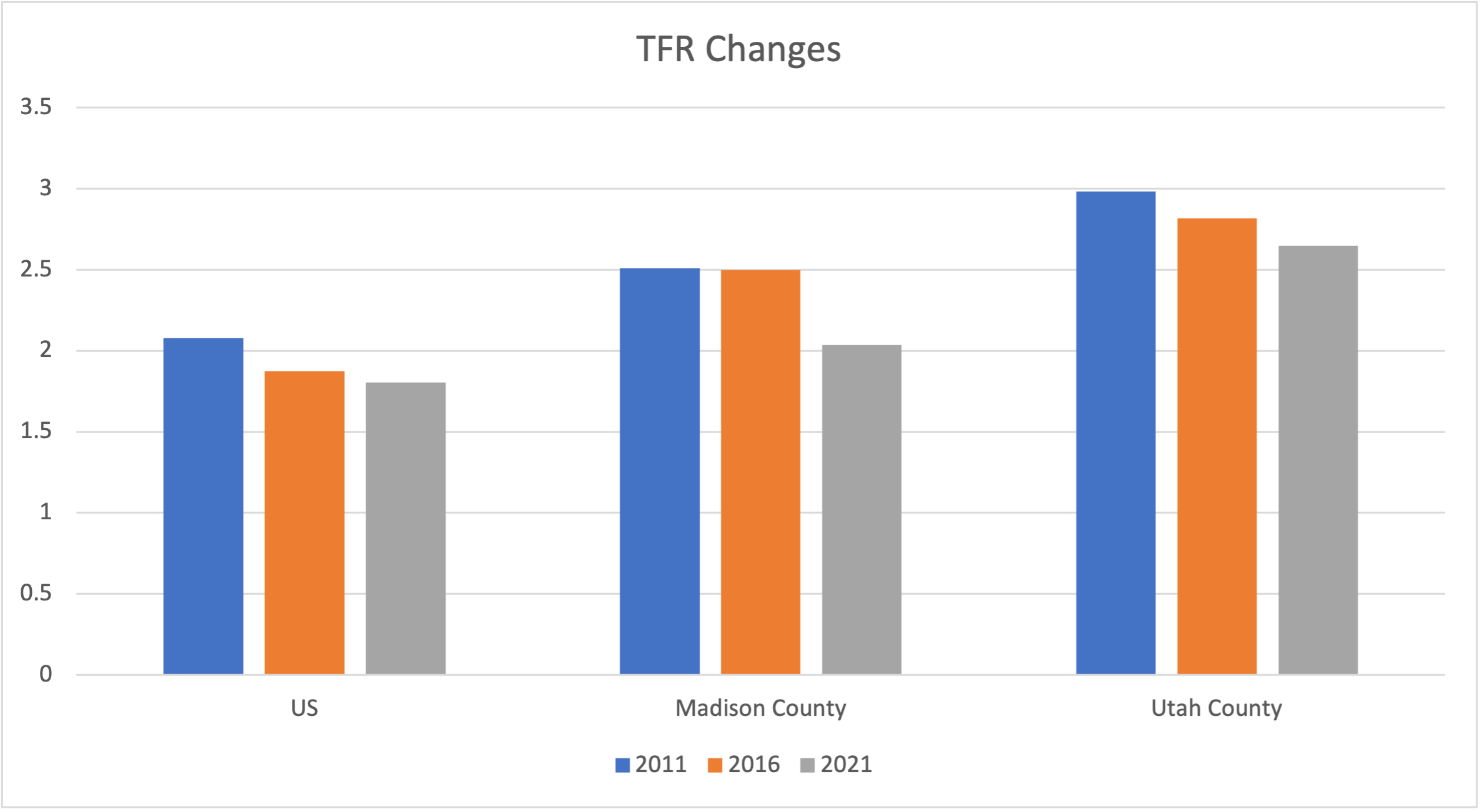
The Decline in Latter-day Saint Fertility Over the Past Decade
While members of the Church are known for our large families, anecdotally it has seemed that Latter-day Saint childbearing has been cratering and that we’ve been losing a lot of our fertility advantage. The problem is, getting robust, current childbearing metrics requires a fairly large sample size because it requires capturing enough women who have…
-
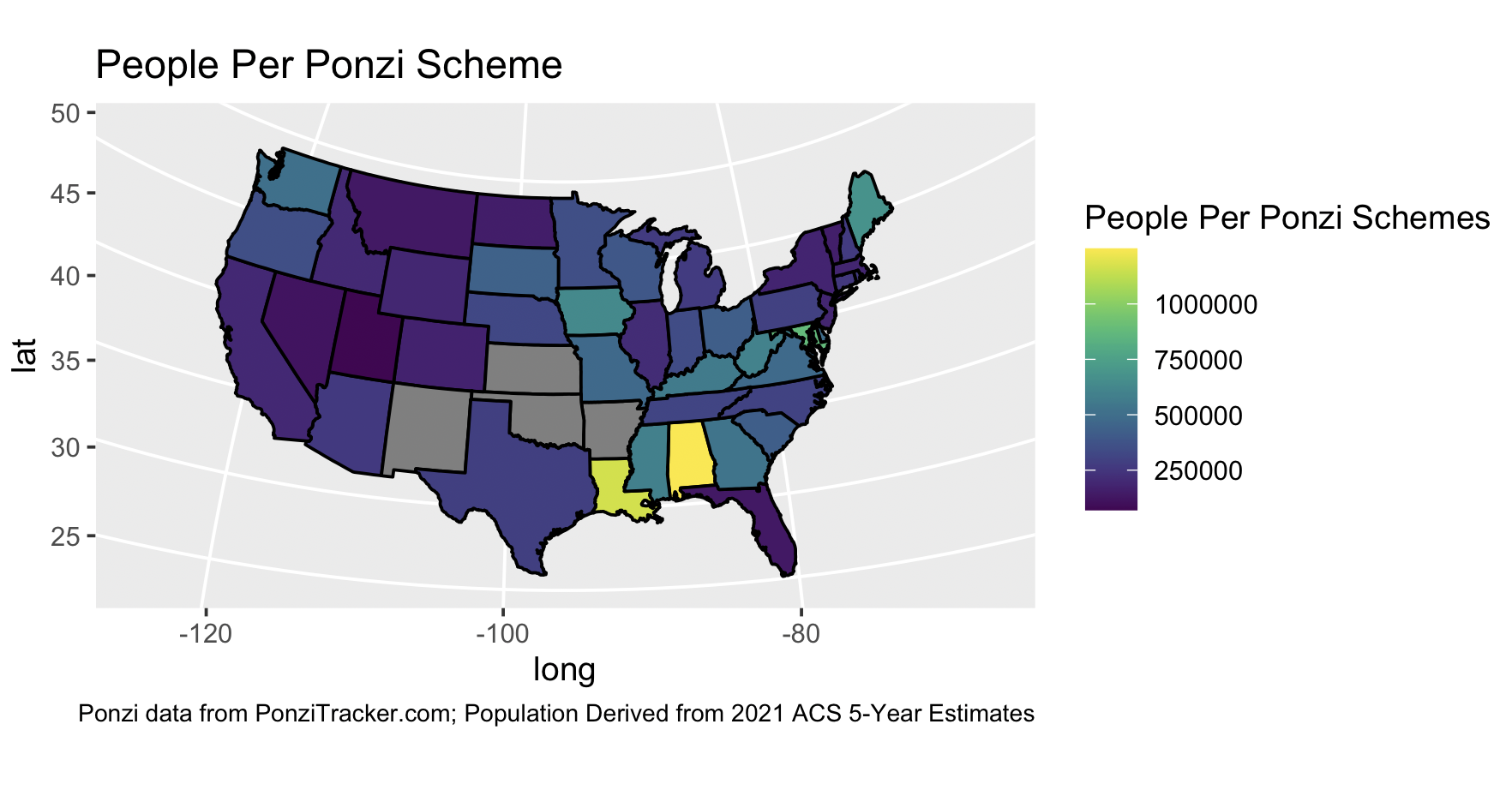
Scams in Zion, Part III: Utah is Indeed the Ponzi Scheme Capital of the US
It’s been a long time coming, but this is part III of a series on “Scams in Zion,” with part I (showing that Latter-day Saint-heavy counties have less fraud) here, and part II discussing our multilevel marketing problem here. Here I’m directly addressing a particular kind of affinity fraud we’re known for: Ponzi schemes.…
-

“Oh God, Where Art Thou? (!)” On Anger at God
I had a season in my life when I was angry at God and it was more than a passing blip that was quickly buried under fear of getting struck by lightning. Anger at God is in some ways the summun malum of sin. Having moments of weakness that lead to poor decisions is one…
-

Is There Less Crime Around the Manhattan Temple?
The New York Police Department has very fine-grained data on crime frequency, with latitude and longitude coordinates for reported crimes. Of course, I’m sure a cop isn’t walking around with a GPS device to get it exact, and if you look at the data it tends to be laid out on a grid, suggesting that…
-
The Church in 2080, Part VI: My Long-Term Growth Prognosis
I’m on the record at various places on this blog as warning about future hiccups in Church growth. Medium-term, I think we need to reconcile ourselves to a world where the center of traditional Church strength enters a period of no or negative growth for the foreseeable future. Additionally, as developing countries become developed countries…
-
The Church in 2080, Part II: The Kids Are Not All Right, or the Post-Post-Gen Zers
There’s been a lot of chatter lately about the mental health crisis facing the liberal kids these days. I don’t know if I have much to add in terms of generalities that hasn’t already been said, so here I’ll discuss its relevance for the Church long-term. If youth were leaving organized religion in droves and…
-
The Church in 2080, Part I: Race, Ethnicity, and Languages
Projecting out on a very long horizon is a bit of a fool’s errand because of unknown unknowns, which is why most formal demographic, political, or economic projections have time horizons measured in the decades at the most. Still, occasionally it’s fun to project out farther (For example, the UN came out with a report…
-

Do People Believe in Hell?
God it is, you say, who judges in this way; he is the persecutor of newborn children; he it is who send tiny babies to eternal flames… It would be right and proper to treat you as beneath argument: you have come so far from religious feeling, from civilized feeling, so far indeed from mere…
-
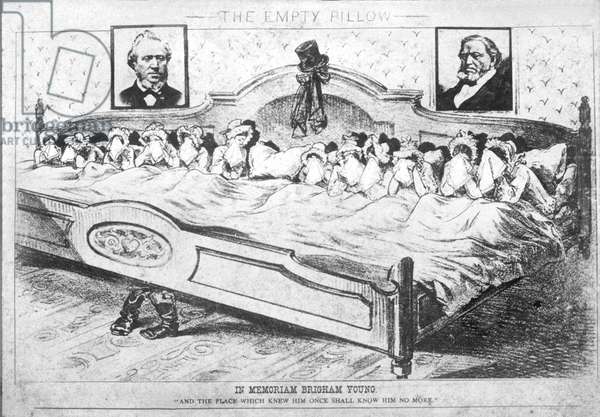
Superforecasting the Church for 2023
Note: After this post went live and the organizer reached out to me, some of these specific predictions were added to an actual prediction market at Manifold Markets. In the past public predictions usually took the form of some pundit making a prognistication about an event that was going to happen years in the future,…
-
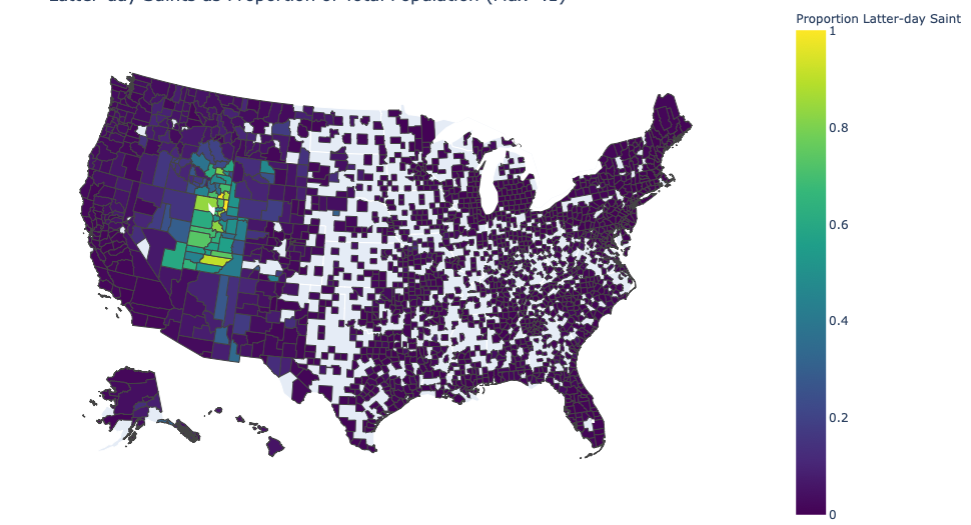
Proportion Latter-day Saint by County Maps
I generated some chloropleths of proportion Latter-day Saint by county from the latest 2020 Religion Census data. Since outside the Mormon corridor the proportions are relatively low, and inside they are relatively high, I did three versions: one with the cutoff at 100%, one with a cutoff at 10%, and one with a cutoff at…
-
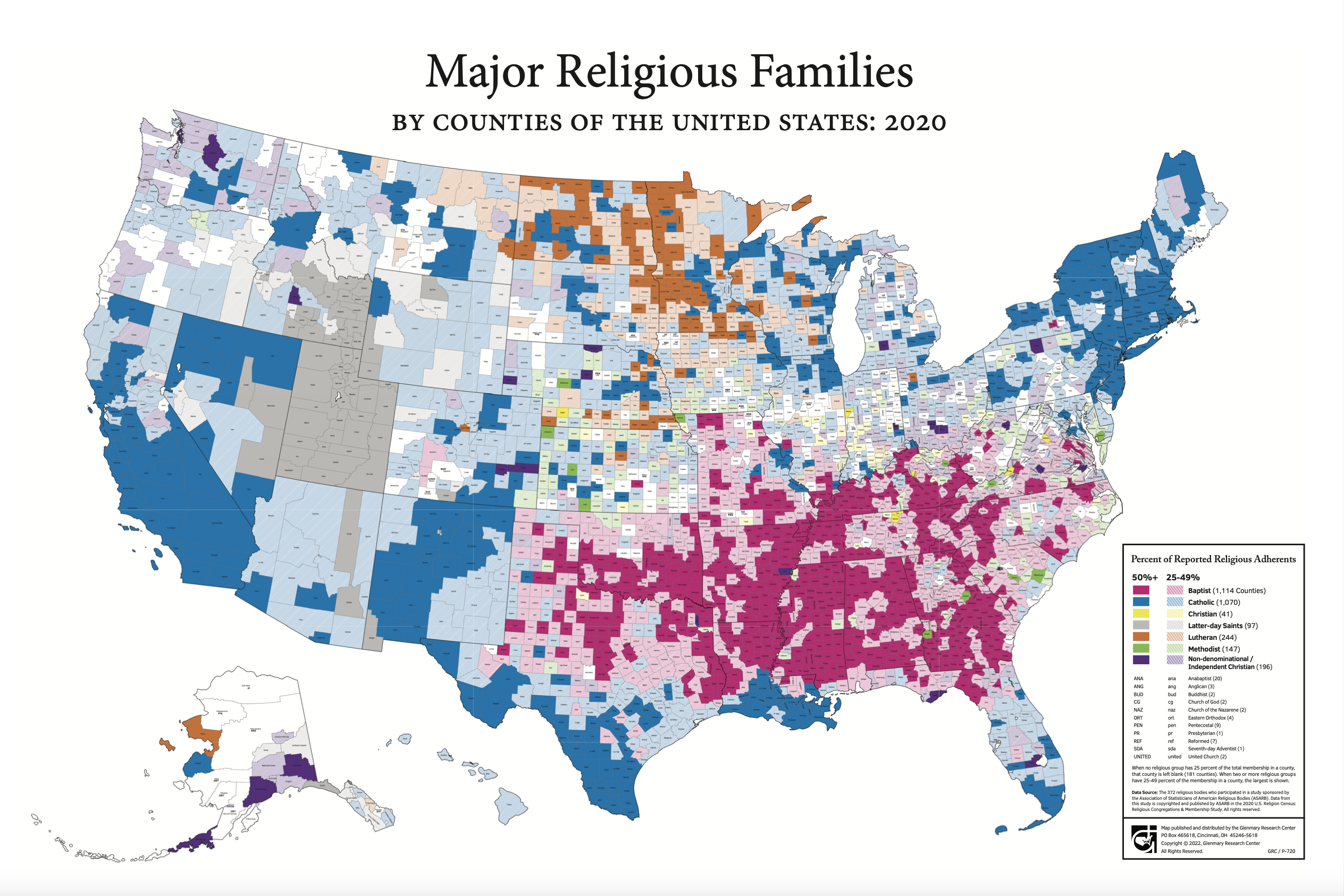
2020 US Religion Census Just Dropped
The decennial US Religion Census just dropped, so we now have fine-grained current data on percent LDS and number of congregations by county. My understanding is that the methodology for the Church’s reporting of their number changed in between waves, which affects our ability to compare the numbers between this and 2010 (I might be…
-
The Greatest Apostasy Since Kirtland? Following a Cohort of Members Across Time
For some years there have been rumors of a large-scale apostasy happening in the Church. These rumors are hard to test without insider information because most surveys have such small samples of Church members it’s really a case of peering through the glass darkly. I’ve been on record suggesting that in the long run the Church…
